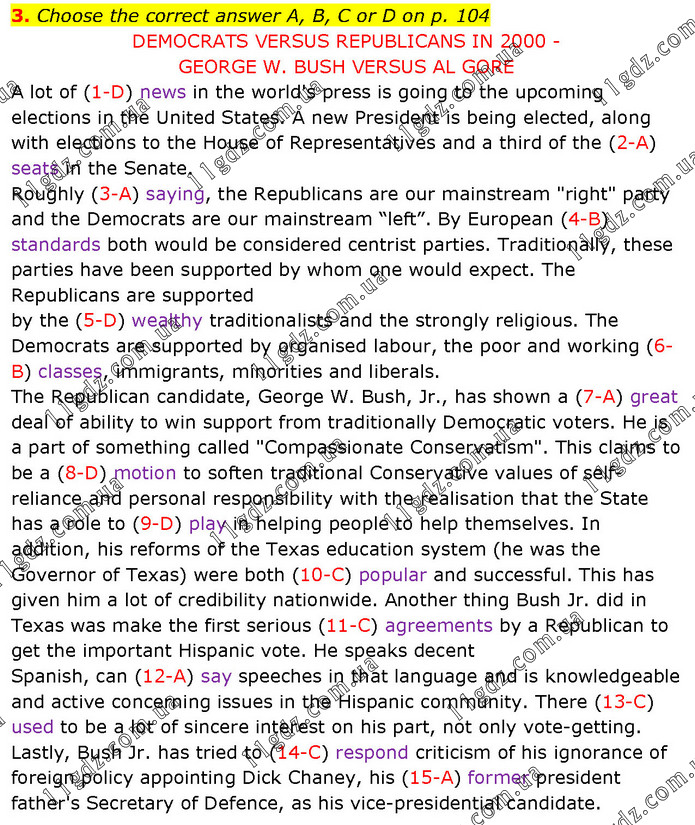UNIT 9. Across State Systems » Стр.103 (3)

Choose the correct answer A, B, C or D on p. 104 DEMOCRATS VERSUS REPUBLICANS IN 2000 - GEORGE W. BUSH VERSUS AL GORE A lot of (1-D) news in the world's press is going to the upcoming elections in the United States. A new President is being elected, along with elections to the House of Representatives and a third of the (2-A) seats in the Senate. Roughly (3-A) saying, the Republicans are our mainstream "right" party and the Democrats are our mainstream “left”. By European (4-B) standards both would be considered centrist parties. Traditionally, these parties have been supported by whom one would expect. The Republicans are supported by the (5-D) wealthy traditionalists and the strongly religious. The Democrats are supported by organised labour, the poor and working (6-B) classes, immigrants, minorities and liberals. The Republican candidate, George W. Bush, Jr., has shown a (7-A) great deal of ability to win support from traditionally Democratic voters. He is a part of something called "Compassionate Conservatism". This claims to be a (8-D) motion to soften traditional Conservative values of self-reliance and personal responsibility with the realisation that the State has a role to (9-D) play in helping people to help themselves. In addition, his reforms of the Texas education system (he was the Governor of Texas) were both (10-C) popular and successful. This has given him a lot of credibility nationwide. Another thing Bush Jr. did in Texas was make the first serious (11-C) agreements by a Republican to get the important Hispanic vote. He speaks decent Spanish, can (12-A) say speeches in that language and is knowledgeable and active concerning issues in the Hispanic community. There (13-C) used to be a lot of sincere interest on his part, not only vote-getting. Lastly, Bush Jr. has tried to (14-C) respond criticism of his ignorance of foreign policy appointing Dick Chaney, his (15-A) former president father's Secretary of Defence, as his vice-presidential candidate.